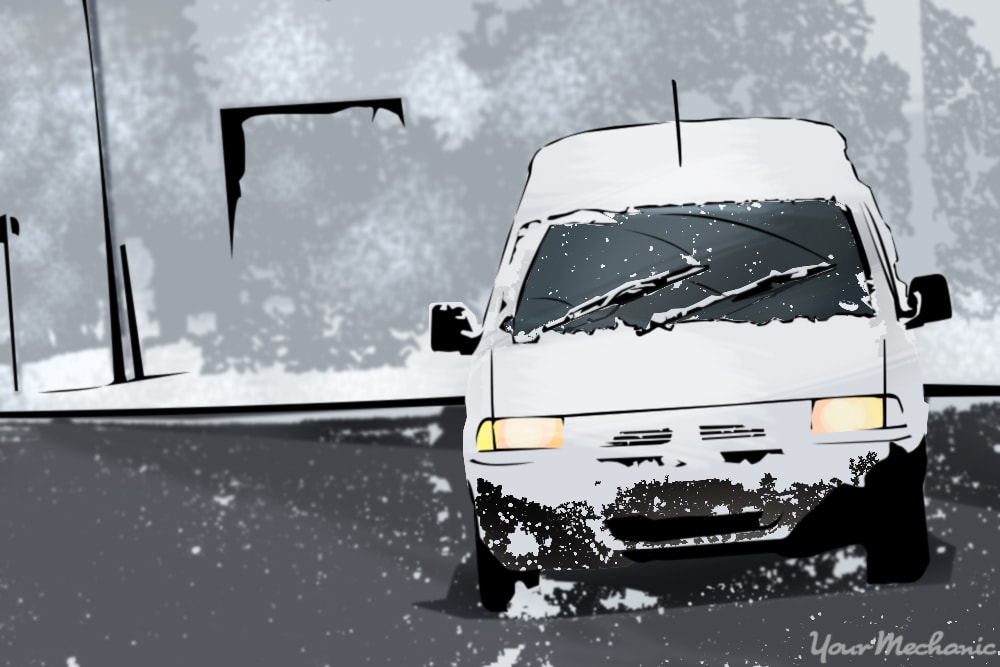

When the winter weather hits, extreme cold, aggressive road conditions, and other factors can cause havoc on several automotive systems. From heaters that stop working to pesky windshield washer tanks that crack and leak, 5 common car repairs are more popular in winter months than others. Listed below are the top 5 winter car repairs you should be aware of, along with several routine maintenance tips you should follow. Completing some of these repairs before significant damage occurs can save you thousands of dollars.
1. Heating System Failure
When a mechanical system operates on a part-time basis, it’s quite common for unexpected damage to occur. Since most of us only use our heating system during cold weather and winter seasons, discovering a problem with the heating system is arguably the leading winter-related automotive repair.
The heating system on most cars, trucks, and SUV’s works through the collaboration of two, independent components: the engine coolant system and the cabin air circulation system.
In order to operate efficiently, each individual component within these systems must work together. With most heating system failures, the heater core either becomes blocked or clogged with dirty radiator debris or sludge. A heating system failure of this nature could also lead to engine overheating, which can cause significant damage to the vehicle’s engine. Make sure to have a professional mechanic inspect your vehicle to determine the exact source of the heating system failure before repairs are attempted.
2. Windshield Wiper Motor Replacement
A common occurrence in winter is the onset of rain and snow. Consequently, this is the time of year when windshield wipers are used frequently. It also happens to be the most popular and most inopportune time for the windshield wiper motor to fail.
The windshield wiper motor includes one or two individual gears that power the individual windshield wiper blades as they are activated by the windshield switch. The windshield wiper motor has several individual parts that can all or independently fail. Sometimes a simple fuse or electrical relay replacement will be the only repair needed — which can save hundreds of dollars.
3. Windshield Washer Tank Replacement
Windshield washer fluid is designed to withstand cold temperatures — in most cases, up to 20-degrees below zero. While most are careful to only use windshield washer fluid, it is quite common for automotive consumers to “top-off the tank” with water. However, doing so sets them up for eventual windshield washer tank failure.
As the freezing temperatures arrive, water/washer fluid inside the tank will freeze, which then cracks the tank. As the temperatures thaw, water/washer fluid will leak from the reservoir until it becomes empty and need replacement.
4. Oil Cooler Line Replacement
The oil cooler line is another component that has a tendency to wear out or break during the winter season — but not always. Since most oil cooler lines are metallic, the issue that occurs is not a failure of the actual line due to freezing, but damage to threads.
Winter damage to the oil cooler lines typically happens in extremely cold climates where cities use magnesium chloride or salt on roads. As vehicles drive over these roads, the salt or mag-chloride sticks to components on the undercarriage of the car, truck, or SUV. Eventually, exposed threads will corrode and may loosen as the engine warms up. Damage to the oil cooler line can cause oil to leak and potential overheating issues.
5. Headlight Bulb Replacement
The headlight bulb is one of those components that doesn’t require specific weather conditions to fail when properly encased. The issue of premature damage occurs when the headlight housing is cracked or the rubber seal has been damaged. When the seal is broken, excessive moisture can leak inside the headlight, which can break the headlight bulb. Extreme cold conditions can also cause the headlight housing or rubber seal to crack, which is a major reason why the winter season is popular for headlight bulb replacement.
As with any other mechanical system, the items listed above all have routine service and maintenance schedules. Many of the top 5 winter car repairs can be avoided by having a service completed by a professional mechanic as often as recommended by your vehicle manufacturer.



